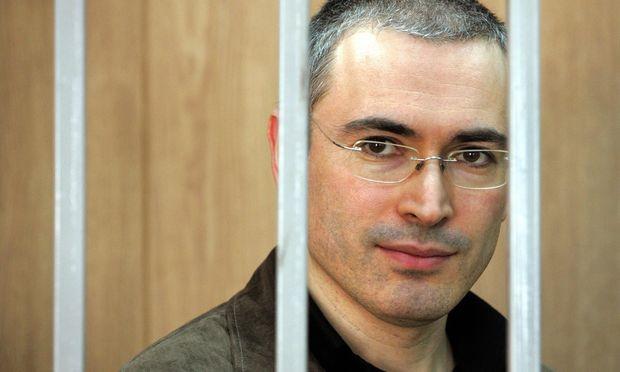
THE DESTRUCTION OF YUKOS

No sooner has the Moscow stock market erased all its losses since Russia annexed Crimea in March than up pops the latest instalment in a long-running corporate saga that will again raise questions about investing in the region.
A ruling is expected by mid-July in a huge litigation case brought by former controlling shareholders of Yukos, once Russia's largest oil company, against the Russian Federation.
The destruction of Yukos nearly a decade ago – widely seen as politically motivated – is the biggest stain on Russia's post-communist business record. This is, by a hefty multiple, the largest investment arbitration case ever brought: the shareholders are looking for more than $100bn damages.
Two smaller cases brought by minority shareholders in recent years have resulted in rulings that Russia illegally expropriated Yukos, so the claimants seem to have a fair chance, at least, of victory.
Russia would then face a thorny choice. Either it pays out, despite swearing blind for years that its actions towards Yukos were fully legal and the case was purely about fraud and corruption – "Russia's Enron". Or it refuses to pay, and faces damaging efforts to enforce the claim against it through foreign courts. That step would also focus more investors on the question of whether it is prepared to play by international rules.
The big arbitration case was launched in The Hague in early 2005 by shareholding subsidiaries of GML, the former Yukos holding company, including a corporate pension fund covering 30,000 ex-Yukos employees. Together they account for about two-thirds of Yukos shares.
They brought it under the Energy Charter Treaty, which sets rules for cross-border energy co-operation. Though Russia signed but never ratified the treaty, and later pulled out, an interim arbitration ruling in 2009 found Russia was bound by it during the Yukos affair.
The claimants argue that Russian authorities, after arresting Mikhail Khodorkovsky, Yukos's biggest shareholder and chief executive, on corruption charges in 2003, destroyed the company through crippling, artificially inflated tax demands. The government then expropriated the company's assets.
The bulk ended up in the hands of Russia's state-controlled Rosneft, now the world's largest publicly traded crude producer. Former Yukos assets still make up the greater part of Rosneft, in which BP has nearly a 20 per cent stake.
Russia says its actions all formed part of a legitimate claim for back taxes and penalties owed by Yukos.
Victory for GML could bring multibillion-dollar payouts for its main shareholders – Leonid Nevzlin, Vladimir Dubov, Mikhail Brudno, Vasily Shakhnovsky, and Platon Lebedev, who was jailed with Mr Khodorkovsky but released in January. It would also benefit ex-employees through the pension fund.
One person who would not benefit is Mr Khodorkovsky, who signed over his Yukos stake to Mr Nevzlin in 2005. Since Russia's most famous political prisoner was freed through a surprise pardon last December, both Mr Nevzlin and Mr Khodorkovsky have insisted the former was not holding the stake in trust for the latter.
Some 55,000 minority investors will not directly benefit, either. They are waiting instead for a damages ruling in a 2004 case brought by Yukos's management on behalf of all shareholders at the European Court of Human Rights, after the court found partially in their favour in 2011. That ruling is also expected before the court's summer break. It may be much smaller than the potential compensation in the GML case. But a GML victory could provide a precedent for Yukos minority shareholders to launch further claims.
Should the ruling go GML's way, Russia can launch a legal challenge saying the arbitration was not binding. If Moscow still loses, having to hand over billions of dollars, mostly to a handful of individuals who all faced Russian legal charges, on a European tribunal decision, will surely stick in the Kremlin's craw. But if Russia did not pay, the claimants' lawyers could enforce the award through courts in 153 countries signed up to a global arbitration convention and pursue Russian state-owned, non-diplomatic assets.
All this is happening at a time when Russia will desperately need domestic and foreign investment for years to come in new capacity to rekindle stalled economic growth. A Russian default on such a huge arbitration ruling could make it even more difficult to attract new money. Common sense might suggest it would be in Moscow's long-term interests to comply. But as investors have found in Russian business, reason does not always prevail.
ft.com





